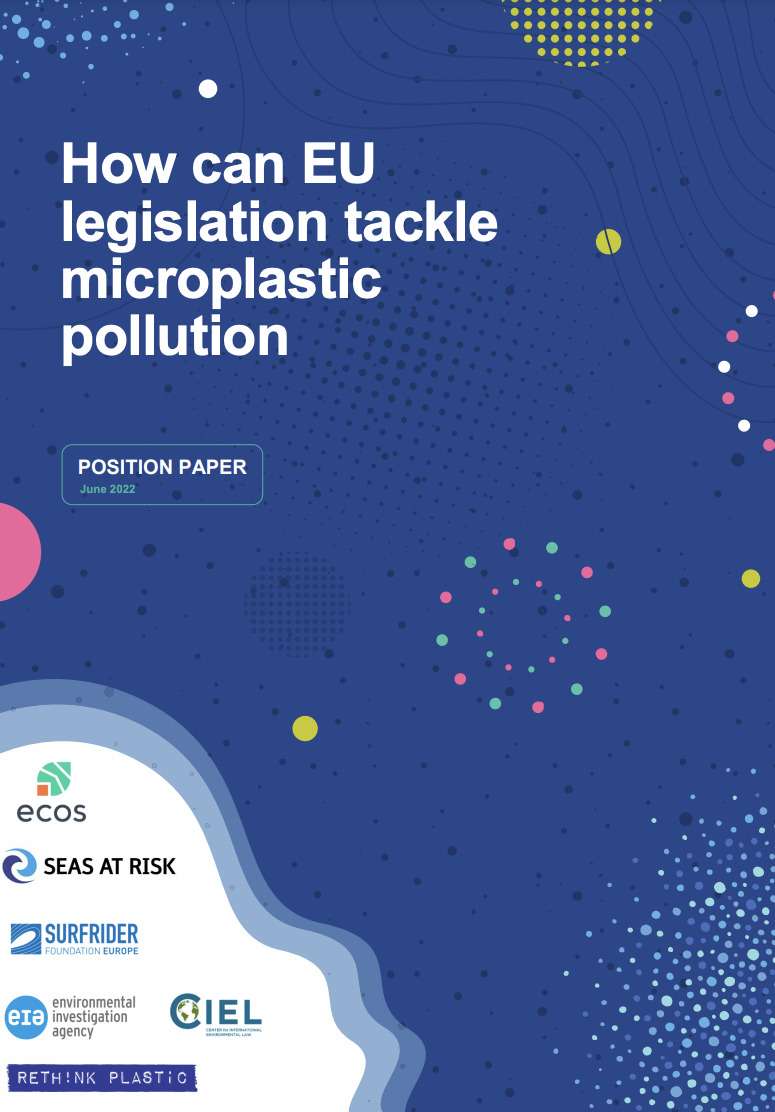
With plastic production expected to skyrocket in the coming years, microplastic pollution is set to become a runaway challenge if adequate preventive measures are not put in place quickly. Effective solutions that prioritize prevention must be implemented now to prevent microplastic pollution and minimize its impacts on our global ecosystems and climate for the generations to come.
Researchers have been worried about the potential harms of microplastics, small plastic pieces of less than 5 mm, for 20 years and have accumulated extensive and deeply concerning evidence of negative impacts on marine, freshwater and terrestrial fauna, flora, ecosystems and habitats, and most recently human health. This pollution is also exacerbating climate change via the release of greenhouse gases (GHG) during the degradation process from macro to microplastics.
Rethink Plastic alliance members published a briefing to analyze how the European Union can tackle pollution from microplastics. Part of the reason for the extensive degree of microplastic pollution that now exists is the chronic overproduction of virgin plastics and the unsustainable design of plastic products. Fundamentally, we need to phase down material and resource use to sustainable levels within planetary boundaries and choose carefully which applications we use plastics for. Improving the design and composition of plastic products across sectors is a concrete and obvious way forward.
[Published on July 4th, 2022]
